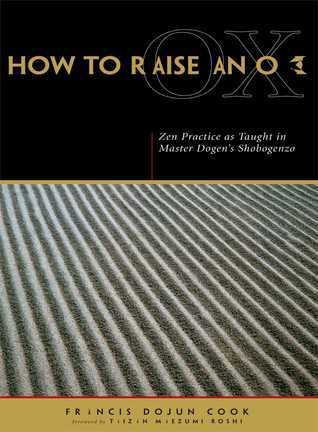What do you think?
Rate this book


208 pages, Paperback
First published January 1, 1978
If I could give it 10 stars to make up for lesser reviews I would.
Paraphrasing Dogen, "no one understands that moment of revelation of reality. Not even the Buddha vision see it." How can it be conveyed or described in words. Cook's translation is masterful, capturing Dogen's vision and marvelous poetry, riddled with koans; as close to an expression of (Zen) reality as I've experienced.
These 9 chapters of the Shobogenzo, along with an extensive commentary by Cook, deal with key elements of Zen practice, leaving out chapters on monastic rules of conduct and obscure knowledge of time and space. Areas such as faith, determination and the nature of enlightenment are woven into intricate patterns of stories of Zen ancestors, their experiences and admonitions.
For a little more on what I think about the book and Zen masters, please have a read:
http://zenancestors.com/zen-masters/
Thanks for reading this and enjoy your practice, Gale Beckwith